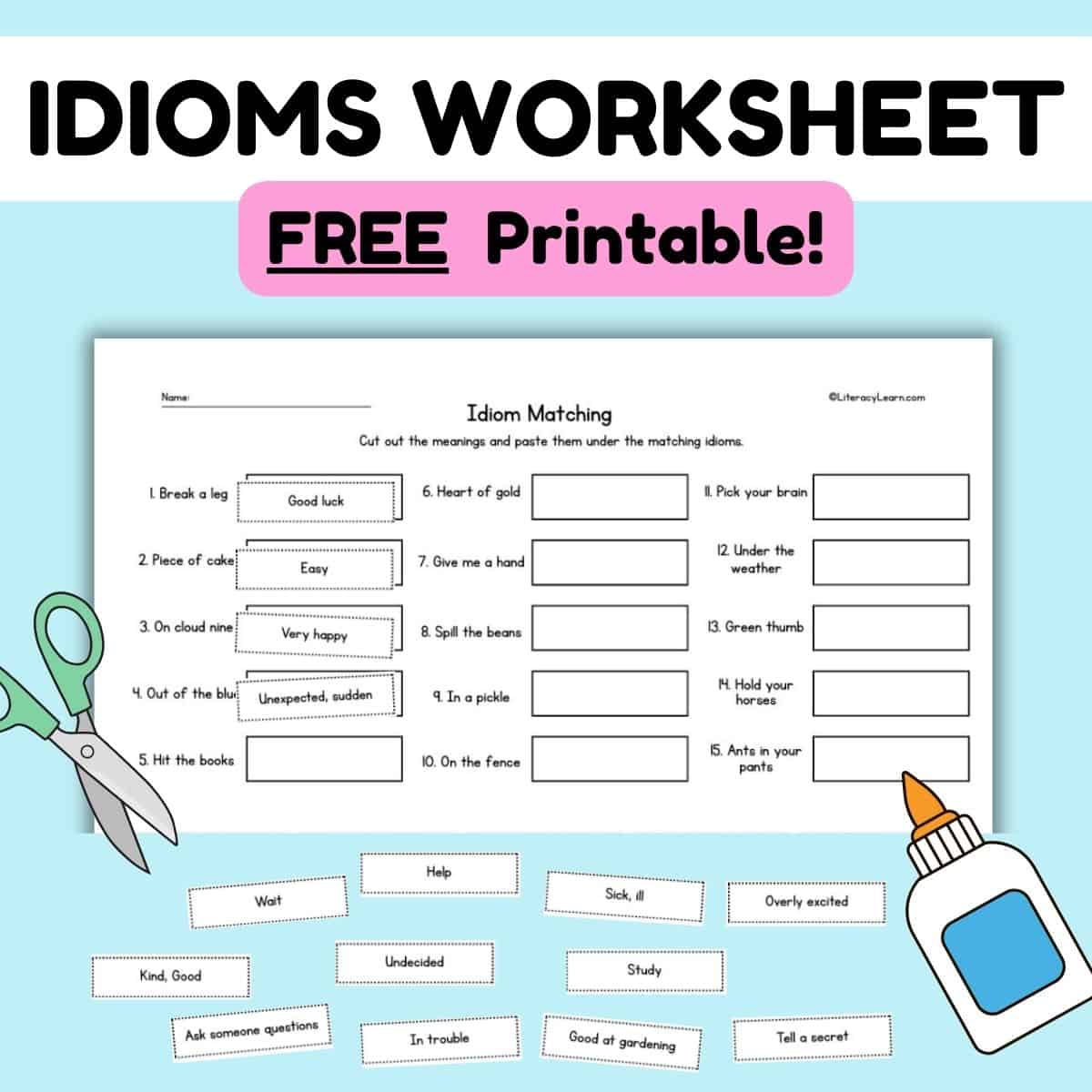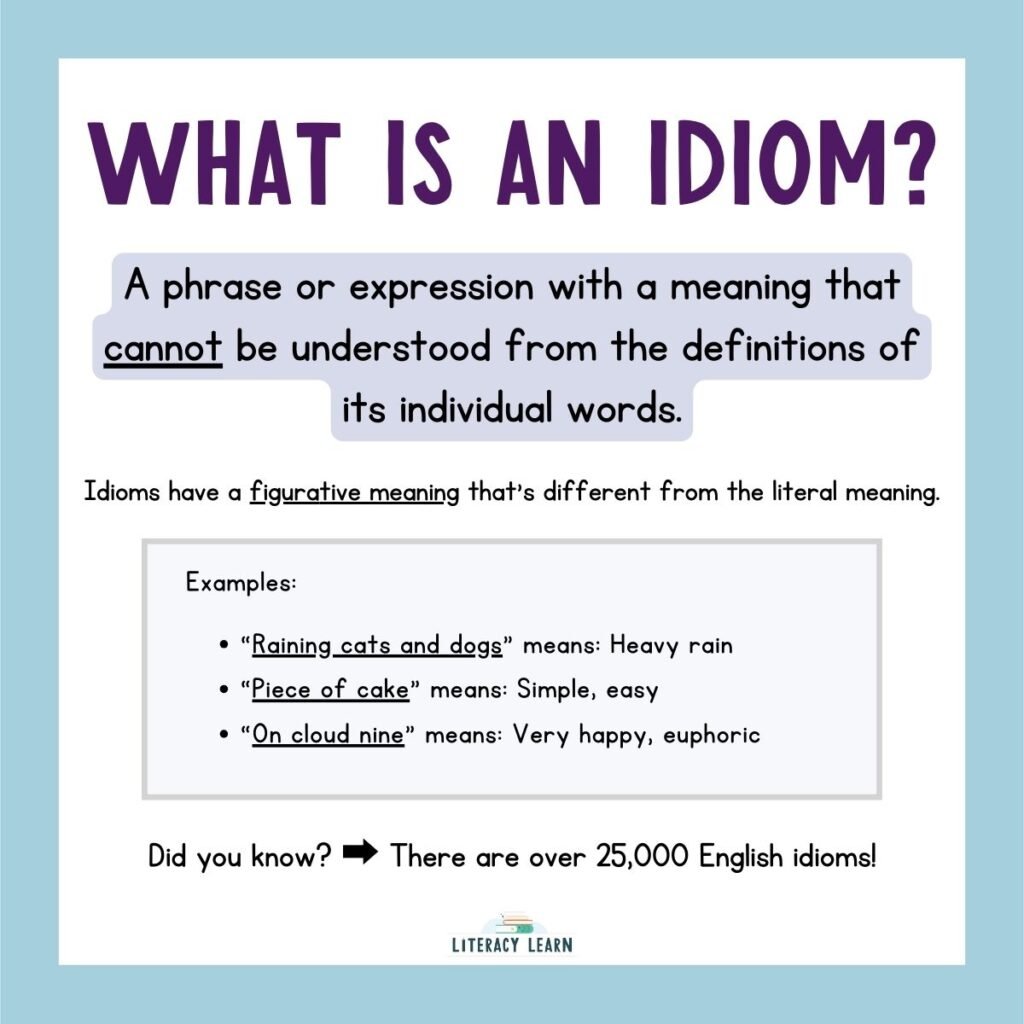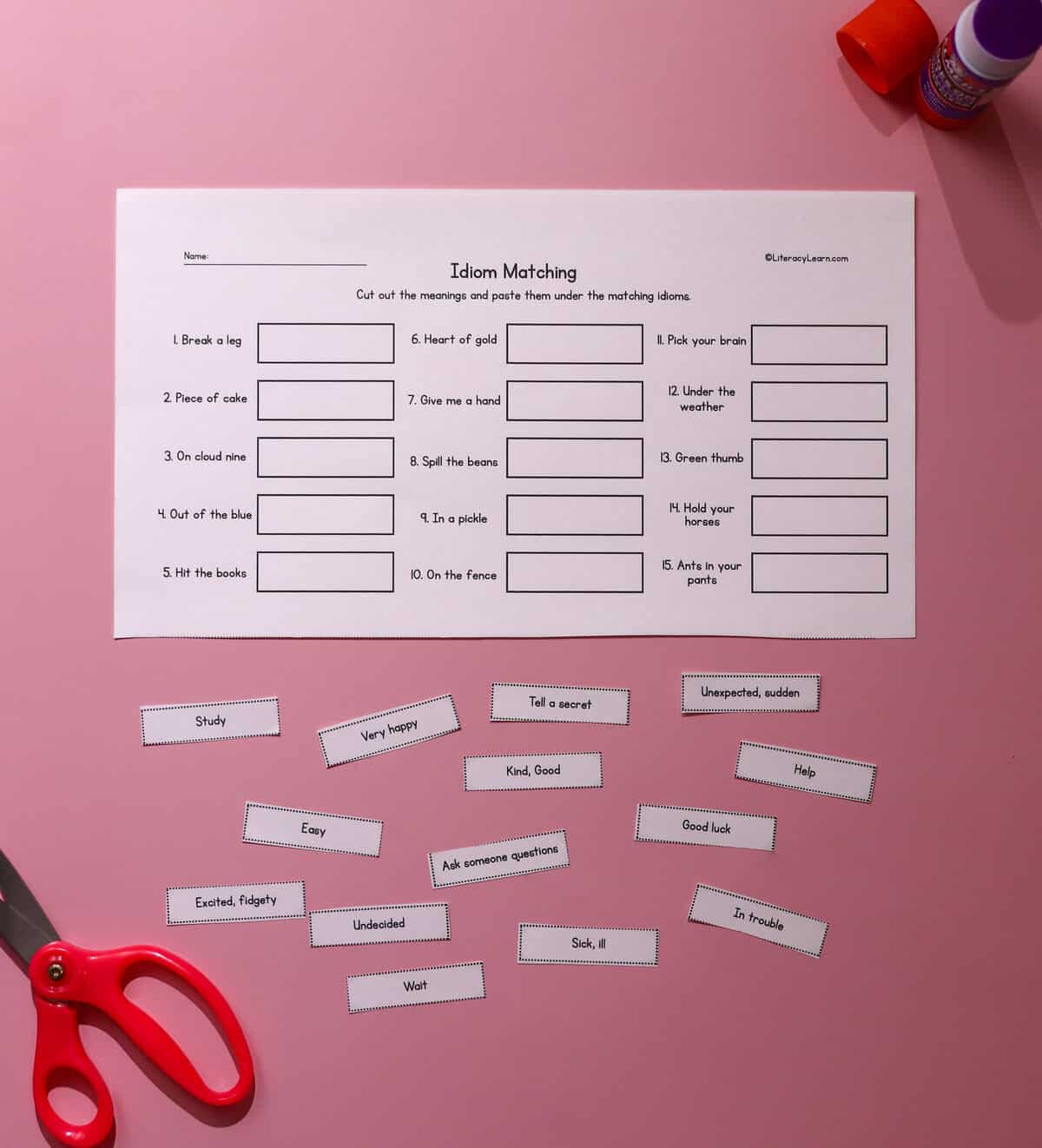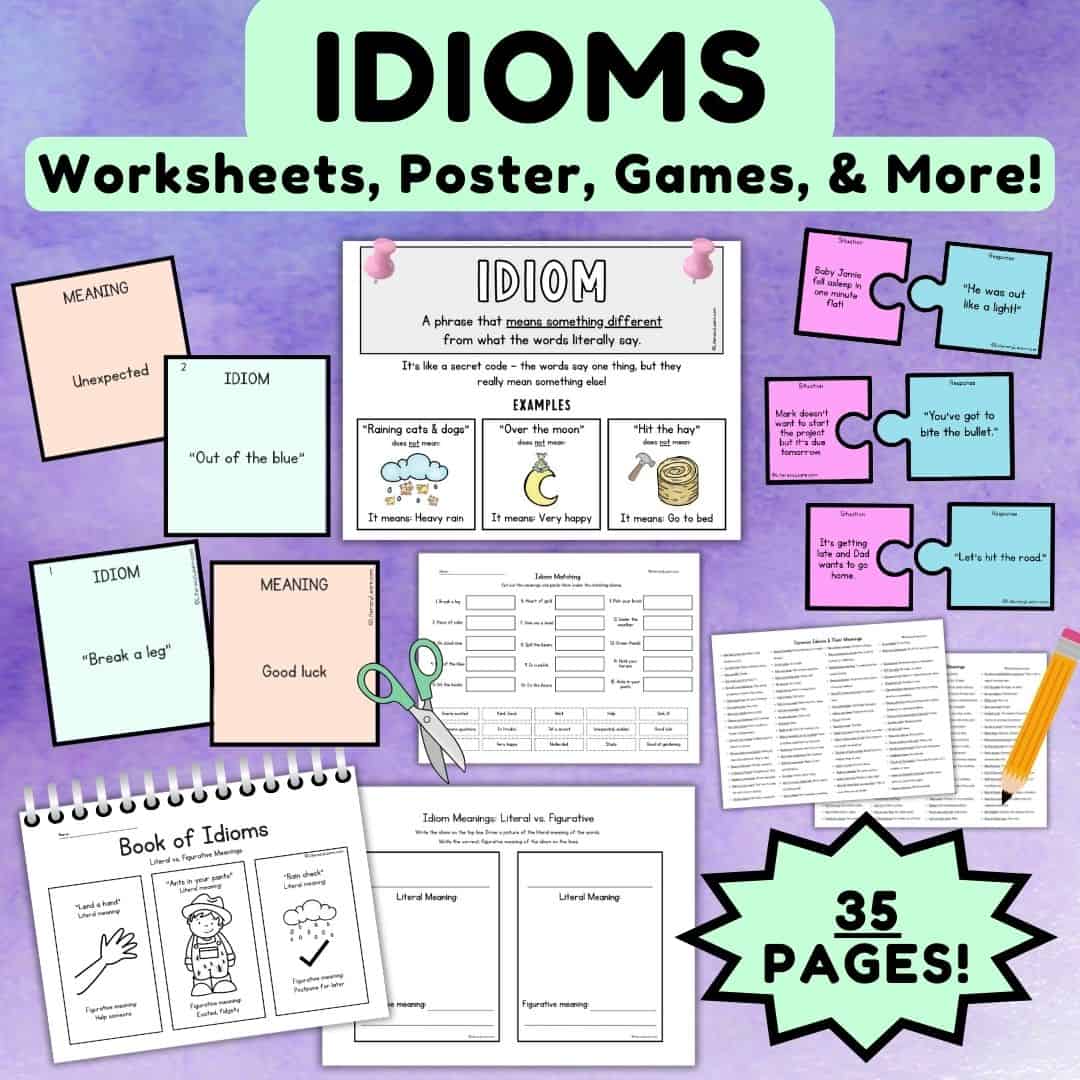Idioms Worksheet – FREE Printable!
This post may contain affiliate links. As an Amazon affiliate, we earn from qualifying purchases.
Get a FREE Idioms worksheet as a printable pdf to help students practice matching common idioms with their meanings. They’ll cut and paste meanings beside the 15 matching idioms.

What Are Idioms?
Idioms are phrases or expressions where the meaning is different from what the individual words literally say. They convey a figurative meaning rather than a literal one.
I teach my students to think of idioms like a “secret code,” where the words say one thing but really mean something else.
There are thousands of idioms in the English language, and they’re used constantly in everyday conversations, literature, tv, movies, and more.
Students don’t need to memorize every single idiom, of course, but understanding the concept and becoming familiar with common idioms will help to unlock deeper, more meaningful communication and understanding.

Is Teaching Idioms Important?
When students master common idioms, they have a deeper understanding of interpersonal communication and comprehension of written texts.
Idioms support or enhance:
- Vocabulary: Idioms help express complex ideas concisely with powerful, meaningful word pictures.
- Communication Skills: Idioms make conversation more interesting and engaging, and they allow for deeper nuance.
- Comprehension of Literal vs. Figurative Meanings: Some students, especially ELLs or those with dyslexia or other language-based learning differences, struggle with understanding figurative meanings because they are less concrete. Idioms are a great way to bring these two concepts to life! That’s because idioms have both a literal meaning (what the words literally say) and a figurative, or idiomatic, meaning (the intended, non-literal meaning).
- Cultural Knowledge: Idioms often reflect culture and origin, and they can vary between areas, even within the same language.
- Example: “Plead the fifth” refers to the fifth amendment in the US Constitution. US English speakers would understand it to mean you don’t want to answer questions, but it may be confusing to UK English speakers.
- Engagement: Idioms are a fun part of everyday language!
⭐️ Further Reading: Read “What Does THAT Mean? for students to better grasp common idioms. My students absolutely love this book!
📝 FREE Idioms Worksheet
This multi-sensory worksheet is super engaging and great practice with 15 common idioms. Students will cut out all of the meanings, then paste them beside the matching idioms.

Idioms and their meanings:
- Break a leg: Good luck
- Piece of cake: Easy
- On cloud nine: Very happy
- Out of the blue: Unexpected, sudden
- Hit the books: Study
- Heart of gold: Kind, good
- Give me a hand: Help
- Spill the beans: Tell a secret
- In a pickle: In trouble
- On the fence: Undecided
- Pick your brain: Ask someone questions
- Under the weather: Sick, ill
- Green thumb: Good at gardening
- Hold your horses: Wait
- Ants in your pants: Excited, fidgety
More Idioms Resources

⭐️ DIVE DEEPER: Get our Idioms Resources (seen above) on TPT or LL Unlimited. Kids can play a matching idioms game, idioms in context puzzle, use our idioms reproducible book, and more!
🖨️ Download & Print
DOWNLOAD TERMS: All of our resources and printables are designed for personal use only in homes and classrooms. Each teacher must download his or her own copy. You may not: Save our files to a shared drive, reproduce our resources on the web, or make photocopies for anyone besides your own students. To share with others, please use the social share links provided or distribute the link to the blog post so others can download their own copies. Your support in this allows us to keep making free resources for everyone! Please see our Creative Credits page for information about the licensed clipart we use. If you have any questions or concerns regarding our terms, please email us. Thank you!
⭐️ Get More FREEBIES: 50 Common Idioms & Meanings (printable list).

